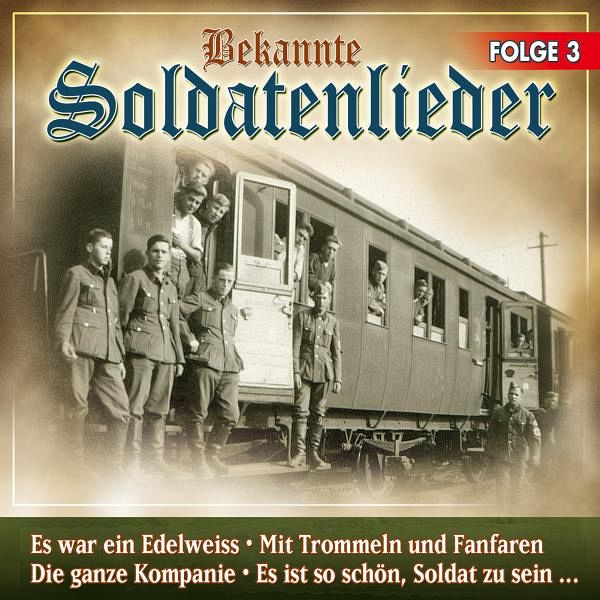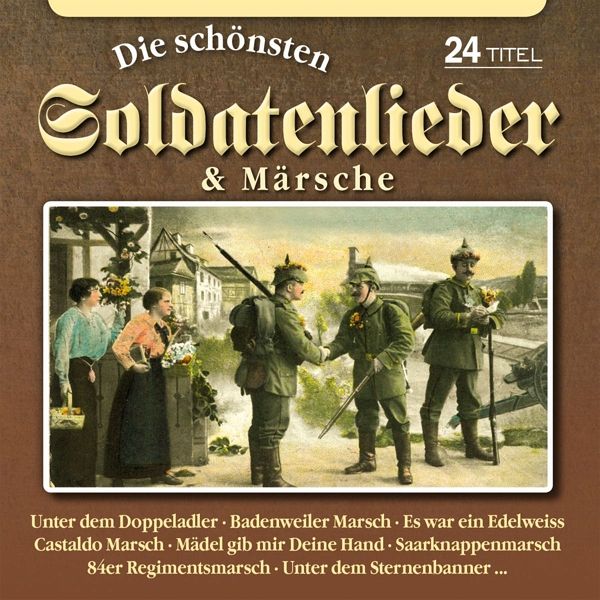

Besides, there is precedent for just dropping a verse if there is a problem with it. Yes, one of the verses references the Reich, but that was just the name of the country at the time.

So obviously she thought it was a Nazi song. However, it turns out that earlier this year, the German Minster of Defense instructed that the song be removed from the German military playbook, in continued de-Nazification.
SOLDATENLIEDER VERBOTEN PATCH
American soldiers were looking at it saying "what's the problem? It's a nice nod to military history" (My own brigade used the palm tree in Iraq, with the brigade patch instead of the swastika, and I've seen Marine vehicles with the EGA there as well) There was a flap about ten years ago when German soldiers in Afghanistan stenciled a variant of the Afrika Korps palm tree on their vehicles (obviously minus the swastika). Maybe us soldiers are a simple lot, we just see a song about tanks and tankers and read absolutely nothing more into it than that. Bundeswehr Panzer troopers would sing it throughout the cold war. It's the only German language song I know (I'm a tanker). Not only was the song not banned, it became famous after the war with tankers around the world. It was written by a tanker, for tankers, no politics, it just happened to be written in the mid 1930s when the Nazis were running the show, and sung by the lads who were overrunning Europe. The nature of your response prompted me to go look up the Panzerlied, which I had never associated as being a Nazi song, but your logic flow indicates that it could be taken as such. that of the Nazi Regime on the Federal Republic of Germany were two very different animals-and the songs and art associated with these regimes follow suit. While certainly the Red Army and the Soviet Union had its share of atrocities, the inheritance it bestowed on the Russian Federation vs. It too is essentially a wistful love song much like Erika-but again, here we see a common association with the Red Army despite the fact that it has since become a folk song in modern-day Russia. One can also look at another contemporary song from the Soviet Union-the song Katyusha-which was written in the late 1930s and became a popular song among the Red Army.

This song has been thoroughly dissociated with the Nazi regime despite its origin for this reason, although it is still closely-associated with WW2. This song was later re-recorded for Allied forces by the German-American actress Marlene Dietrich (not entirely coincidentally), where it became so popular she later gave live shows to US forces operating in France and Germany. The lyrics were roughly as innocuous as those of Erika (both essentially are wistful love songs) except this song also happened to be popular with Allied troops operating in North Africa, who were able to pick up the radio waves from what is now Serbia. I will compare the song with another contemporary piece: "Lili Marleen," which was first recorded in 1939 and was made popular by the German controlled Radio Belgrade in 1941. Even songs that were more distantly related than Erika were censored to varying extents-the Deutschlandlied had been in existence well before the rise of the NSDAP and yet it has been completely changed in the current German anthem due to the association of it with the Nazi regime. The very fact that if I search for the song "Erika" and am immediately confronted with results depicting WW2 German soldiers and other Nazi symbols attests to this association. While certainly the song remained popular after the war, it was primarily because of how popular it was among German soldiers, much like the American song "Dixie" is well-known even today despite the fact that it is absolutely tied to the Confederate States of America. I would argue that the song is very difficult to dissociate from the Nazi regime for this reason.
SOLDATENLIEDER VERBOTEN MOVIE
The song itself was very popular in the Wehrmacht and the Waffen-SS and is heavily associated with Nazi Germany in numerous media such as the 1993 movie Schindler's List where it is used as a Nazi motif. Erika was written at some point in the 1930s by Herms Niel, who became what essentially was a musical propagandist for the Nazi regime after the Nazi rise to power in 1933.


 0 kommentar(er)
0 kommentar(er)
